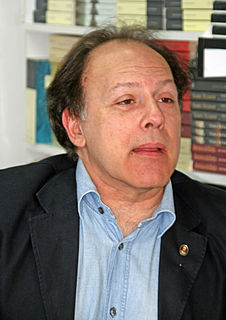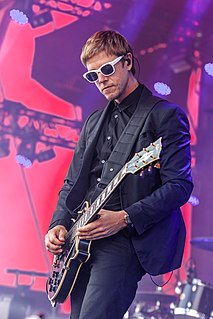A Quote by Remy de Gourmont
Cliche refers to words, commonplace to ideas. Cliche describes the form or the letter, commonplace the substance or spirit. To confuse them is to confuse the thought with the expression of the thought. The cliche is immediately perceivable; the commonplace very often escapes notice if decked out in original dress. There are few examples, in any literature, of new ideas expressed in original form. The most critical mind must often be content with one or the other of these pleasures, only too happy when it is not deprived of both at once, which is not too rarely the case.
Quote Topics
Any
Both
Case
Cliche
Commonplace
Confuse
Content
Critical
Deprived
Dress
Examples
Expressed
Expression
Few
Form
Happy
Ideas
Immediately
Letter
Literature
Mind
Most
Must
New
New Idea
New Ideas
Notice
Often
Once
Only
Original
Other
Out
Pleasures
Rarely
Spirit
Substance
Them
Thought
Too
Very
Which
Words
Related Quotes
My experience is that journalists report on the nearest-cliche algorithm, which is extremely uninformative because there aren't many cliches, the truth is often quite distant from any cliche, and the only thing you can infer about the actual event was that this was the closest cliche. It is simply not possible to appreciate the sheer awfulness of mainstream media reporting until someone has actually reported on you. It is so much worse than you think.
There is a popular cliché ... which says that you cannot get out of computers any more than you have put in..., that computers can only do exactly what you tell them to, and that therefore computers are never creative. This cliché is true only in a crashingly trivial sense, the same sense in which Shakespeare never wrote anything except what his first schoolteacher taught him to write-words.
I haven't come across any recent new ideas in film that strike me as being particularly important and that have to do with form. I think that a preoccupation with originality of form is more or less a fruitless thing. A truly original person with a truly original mind will not be able to function in the old form and will simply do something different. Others had much better think of the form as being some sort of classical tradition and try to work within it.
To hold in the mind forever two ideas which seemed to be in opposition. The first . . . acceptance totally without rancor, of life as it is, and men as they are [;] . . . the second . . . that one must never, in one's life, accept . . . injustices as commonplace but must fight them with all one's strength.







































